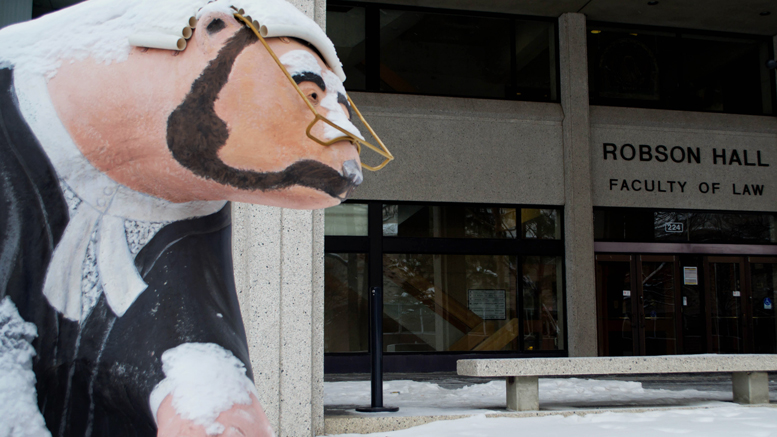As the three short-listed candidates, all from outside Manitoba, I would like to first welcome you to our province. I hope that you enjoy your visit.
Students do not have much meaningful input into your appointment (a process that is opaque at best) but I hope that you will hear me out nonetheless.
It is clear, so far, that the issue of a tuition increase is not on your radar. I don’t blame you. The faculty may have forgotten to mention it. In case you are interested, here is my perspective.
Tuition for the faculty of law at the U of M is low – approximately $10,600. It has not increased substantially since 2003. The faculty and most reasonable people would agree that it is too low, if not unsustainable. The fact that costs increase over time is a practical reality in any business or non-profit. But, last year’s survey to students intimated that the faculty is looking at an increase of over fifty percent in a relatively short period of time to bring us in line with other law schools across Canada.
This is, undoubtedly, a case of the chicken and the egg. Does our law school provide the same experience and services to justify a cost similar to others? And, can our law school provide the same experience and services as other universities with its current operating budget? What comes first, the tuition increase or the comparable services?
I see a tuition increase not as an insurmountable issue so much as a valuable opportunity. As incoming dean, you could restructure the way in which our school equips students for practical careers in law, to better serve our legal community in a continuously evolving market.
We need consultation, yes, but we also need a realistic business plan. What is the added value for students and firms, beyond easing what is surely considerable labour pressure from members of the faculty? How much of the tuition increase would go towards salary increases? How will you mitigate the impact on current and future students? Could the law school achieve its goals with less than a fifty percent increase?
When deciding how to spend new revenue, you should consider (with apologies to JFK) not only what the legal community can do for our law school, but also what we can do as a law school for the legal community. How can we accommodate their needs, demands and interests? Maybe then our alumni would feel inclined to give more back to the faculty.
What do firms need? They need students with more practical, hands-on learning experience to prepare them for actual practice. I challenge you to find a firm that disagrees. The truth of the matter is that not all forms of practical learning can be or are best taught by those steeped in academe, but by legal professionals with years of practical experience.
Is there a clear disconnect between the priorities of some of the faculty and the students? Yes, but this is not an argument to abandon research and academic distinction. We should continue to find ways to distinguish our law school as a leader in human rights and indigenous law.
At the same time, we must ensure we maintain legal excellence in areas that fit within the business model of our legal community, with an emphasis on corporate and commercial, tax, litigation, labour and employment, and family law. The best alternative is to find new and pragmatic ways to combine these two objectives. For instance, I see substantial opportunity for profitable growth in the natural resource sector with corporate and aboriginal law.
Not all lawyers work for private firms. Some will pursue careers in academia, the public service and in non-profit sectors. I am not asking you to ignore the interests and agendas of your future faculty members and throw the baby out with the bathwater. I am asking you for a realistic business plan that incorporates the priorities of students and the legal community, before you give in exclusively to the concerns of faculty members.
Thanks for your consideration, and I wish you the best in the hiring process.
Kyle Mirecki is a 2nd year law student and UMSU Chair





